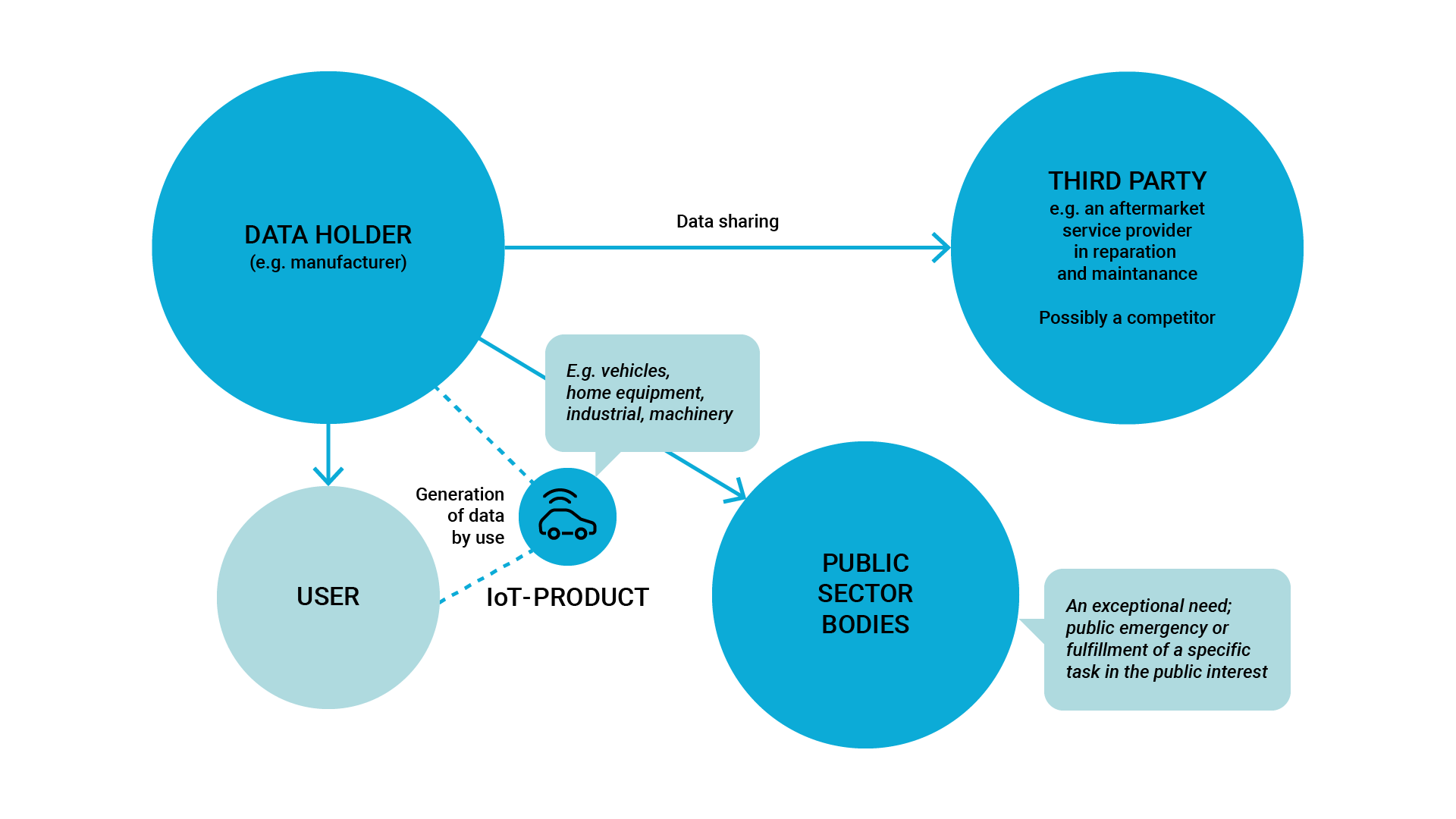IoT device manufacturers must open user data for free to users and under FRAND terms to third parties – Impact assessment should start now.
As the European Union aims to acquire a leading role in data economy, there is a regulatory boost around data. It is high time especially for IoT companies to start digesting the changes that the proposed Data Act will bring on data markets. The Data Act targets industrial ‘non-personal’ data and will regulate B2B, B2C and B2G data sharing. We recommend IoT device manufacturers to start a proper impact assessment by evaluating the requirements introduced by the Data Act and to compare them to the current state of operations and capabilities in order to identify required actions and to prepare for future changes. Already now, businesses should take a stronger interest in data to maximise its value.
The Data Act will shape the state of competition within the EU data markets. The proposed act applies to data generated by products defined as “tangible, movable items” and related services. Device manufacturers will be obliged to open data generated by the use of these IoT (“internet of things”) products to users and also, upon request by a user, to third parties e.g. those providing users with aftermarket services. It is noteworthy, that this applies not only to data generated by consumer goods such as home equipment, health/wellness devices and vehicles but also in the industrial setting to agricultural and industrial machinery, just to name a few. Device manufacturers and designers must implement the “Data sharing by design” – requirement in their IoT products, and should keep this in mind both when developing new products as well as when adjusting current product models to new regulatory requirements.
Contact authors



